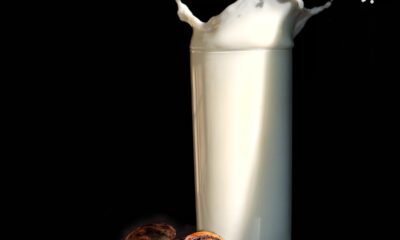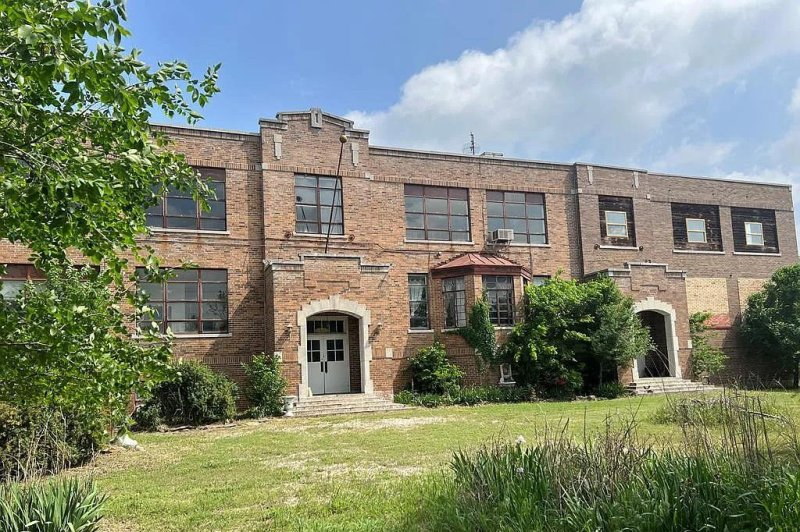In a Nutshell:
- An old high school in Burbank, Oklahoma, originally built in 1924, is listed for sale as a single-family home for a remarkably low price of $60,000.
- The 17,408-square-foot property boasts five bedrooms, four bathrooms, and even features an indoor basketball court, preserving its athletic heritage.
- Prospective buyers have the opportunity to unleash their imagination and transform this historic building into their dream home or explore its potential as a unique commercial space.
In the realm of unusual real estate listings, a peculiar gem has emerged in the form of an old high school in Burbank, Oklahoma.
This historic 17,408-square-foot building, originally known as Burbank High School, has hit the market as a single-family home, listed for the surprisingly modest price of $60,000.
If you’ve ever dreamt of living in a quirky space with a rich history, this might just be the opportunity you’ve been waiting for.
Constructed way back in 1924, this former educational institution has since transformed into a potentially unconventional living space.
The listing on Zillow proudly boasts of the property’s five bedrooms, four bathrooms, and, most intriguingly, an indoor basketball court.
Yes, you read that right—an indoor basketball court!
It seems the spirit of athleticism has lingered long after the school’s closure in 1968.
According to the real estate listing, the old high school presents a myriad of possibilities for its future owners.
“There is plenty of opportunity to make this property your own,” the listing gushes.
“The large lot size and open floor plan provide endless opportunities. With some imagination, this could be the perfect home for you.”
Imagine the creativity that could be unleashed within those spacious walls—a home theater, an artist’s studio, or perhaps even an eccentric museum of oddities.
Not limited to residential use, the realty firm behind the listing suggests that the versatile structure could easily be converted into a commercial space.
So, for those entrepreneurs out there seeking a distinctive building to house their business, this peculiar property might just be the answer to your offbeat aspirations.
Situated at 450 McCorkle Ave. in Burbank, OK, this extraordinary residence has been on the market since May 19, beckoning curious buyers to explore its unconventional charm.
The listing emphasizes that the property remains active on multiple listing services, ensuring its continued presence in the real estate spotlight.
If you’re looking for a conversation starter or a home that breaks the mold, this old high school turned single-family home is a rare find.
With its intriguing history, spacious rooms, and the potential for imaginative transformations, it holds the promise of a truly one-of-a-kind living experience.
So, if you’re in the market for a dash of quirkiness blended with an affordable price tag, this Oklahoma oddity might just be your dream come true.
Source

 Business1 year ago
Business1 year ago
 Entertainment12 months ago
Entertainment12 months ago
 Science12 months ago
Science12 months ago
 Business1 year ago
Business1 year ago
 Entertainment12 months ago
Entertainment12 months ago
 Entertainment12 months ago
Entertainment12 months ago
 Tech12 months ago
Tech12 months ago
 U.S.12 months ago
U.S.12 months ago



